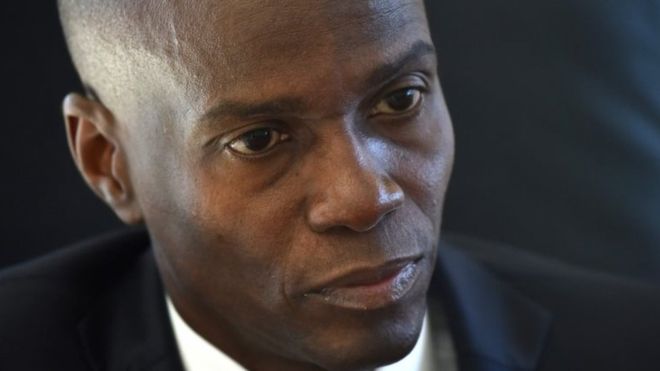PORT-AU-PRINCE, (Reuters) – Haiti’s President Jovenel Moise struck a combative note yesterday in his first address since violent protests flared in the capital, defying calls for his ouster but urging dialogue to address soaring inflation and alleged misuse of funds.
Thousands of demonstrators have been calling for days for Moise to resign and for an independent probe into the whereabouts of funds from the PetroCaribe agreement, an alliance between Caribbean countries and Venezuela.
The agreement’s preferential terms for energy purchases were meant to help free up funds to aid development in the impoverished country hammered by natural disasters and ranked as the poorest in the Americas, according to the World Bank.
The protests, which have reportedly killed several people and injured many others, have highlighted widespread anxieties about the state of the economy, amid ballooning inflation and people’s struggle to pay for basic necessities.

The U.S. State department yesterday ordered out all non-emergency U.S. personnel and their families amid spiraling unrest, citing burning tires, road blockages and rampant violent crime including armed robbery.
In an address from the presidential palace, Moise said he would not hand the country over to drug traffickers and said dialogue was the only way to stop a civil war.
“I, Jovenel Moise, head of state, will not give the country up to armed gangs and drug traffickers,” he said, alluding to government officials who he said reportedly took to the streets along with “heads of gangs wanted by the law.”
But he added: “I heard the voice of the people. I know the problems that torment them. That’s why the government has taken many measures. I asked the prime minister to explain them and to apply them without delay to relieve misery.”
Haiti has a long tradition of corruption, and international partners and anti-graft watchdogs have often blamed Haitian politicians for failing to crack down on the scourge.









